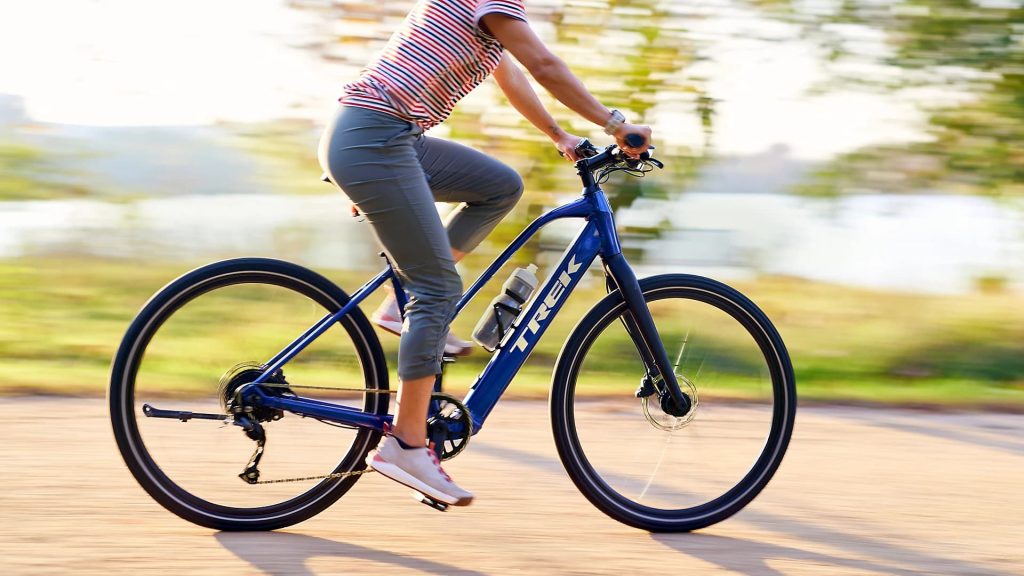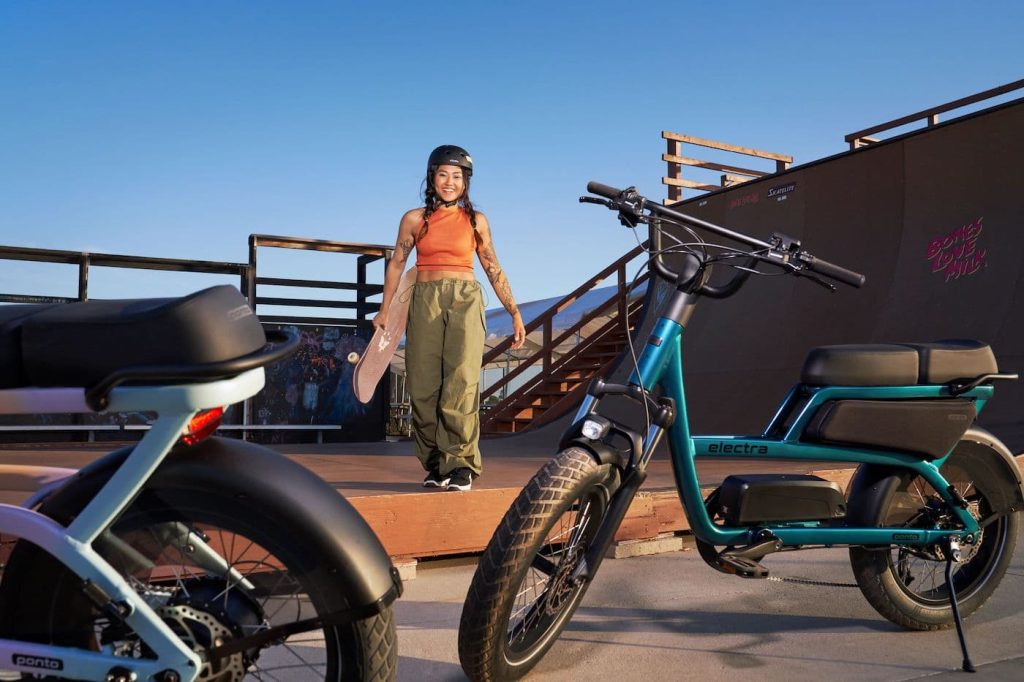
An increasing number of premium bicycle companies have thrown their hat in the budget-minded electric bike ring lately, resulting in lower prices than ever before from major bike shop brands. So what’s behind this move?
Several of the recent launches from major bicycle brands have included models that undercut their average e-bike prices by several thousand dollars.
While Cannondale has grabbed headlines for its roughly $5,000 Cargowagen electric cargo bike recently, who remembers the much more affordable $1,900 Cannondale Compact Neo urban e-bike? The inclusion of a simpler hub motor compared to pricier and more complicated mid-drive motors helped the company reach its lowest price point yet for an e-bike.
Trek’s electric bikes normally carry hefty price tags as well, but the company’s Dual Sport+ and FX+ also saw hub motors and lower-shelf components bring the prices down to around $2,400 at launch.

Budget e-bikes leading sales
One of the reasons for this focus on more entry-level bikes is quite likely a mere numbers game. While profit margins aren’t as high on lower-priced e-bikes, they sell in much higher numbers in the US. Compared to Europeans that often buy e-bikes as car replacement vehicles and thus are prepared to spend many thousands of dollars for a higher end model, a much larger percentage Americans e-bike riders use their bikes either to supplement car trips or purely for sport/recreation.
Sure, there are plenty of Americans replacing traditional car ownership with e-bikes, and many of them will spend a bit more. But by and large, companies that serve the $1,000 to $2,000 price range in the e-bike market seem to make up the lion’s share of the sales.
That’s a difficult price point for many of the higher-end brands to reach, but several have gotten close. The Ponto Go! electric moped-style bike, launched by Trek subsidiary Electra, rolled out at $2,699 and offered a higher-end moped-style ride than much of the competition. It also had one more advantage going for it: access to Trek’s wide network of local bike shops offering service and support. The bike can’t compete watt for watt against entrenched favorites like the similarly styled Rad Power Bikes RadRunner, but it also comes with the backing of a much older and well-established bike company with hundreds of local bike shops to call on.
Additionally, a growing number of e-bike incentive programs are helping people buy electric bikes that they couldn’t previously afford, as well as helping others afford a higher-quality and longer-lasting bike than could have been possible without subsidies or tax credits.

Lower-cost e-bikes serve as introductions to higher-end brands
When Specialized launched its Globe line, it did so with a calculated decision to reach value shoppers and introduce them to a higher end e-bike company.
Similarly to other brands that have taken a razor to their price tags, Specialized skipped the mid-drive motor and higher-end components when it rolled out its short tail and then long-tail cargo e-bikes designed for budget-minded bike shoppers. But it kept much of its higher quality design and fabrication as well as access to its network of bike shops for service and support.
And in doing so, the company has started getting riders on Specialized e-bikes that likely never would have considered the brand. The Globe Hault ST launched at around $2,700, which is still a few hundred dollars more than value-priced short-tail cargo bike offerings from budget e-bike companies, but it brought the backing of a major bicycle company with it. There are horror stories of trying to get repairs done from mail order e-bike companies (though there are likely more success stories that we simply don’t hear about). On the other hand, taking a bike into a local bike shop for service is usually easy and painless.
Thus, in the process of developing a more entry-level sub-brand, Specialized has started reaching a much wider audience than it ever could have hoped to before.

A shift toward e-bikes is good for high-end brands
Low-cost electric bike companies are still critical for the growing US market, helping hesitant riders get their foot in the door without risking several months of pay.
But as US e-bike ridership continues to grow, more people are shifting a higher percentage of their transportation onto e-bikes.
The US market has long lagged behind Europe, but it has followed a similar trajectory, albeit several years later. Many US cities are currently working on improving their cycling infrastructure with better protected bike lanes, making cycling a more common option. Those that tend to ride their e-bikes for more miles throughout the week often gravitate to higher-priced models that require less maintenance and repair, as well as those that offer more options for local service and support when necessary.
Lower-cost e-bikes from budget companies will always be important. In fact, most of my e-bikes are from budget brands. The nicest e-bike I’ve ever bought was around $3,000, and I bought it already used to avoid paying even that much. But as nicer e-bikes grow their numbers in the US, the higher-end bike shop brands have shown that they’re ready to meet consumers in the middle with entry-level models that split the difference by thoughtful compromise on price and performance.
Author: Micah Toll
Source: Electrek



